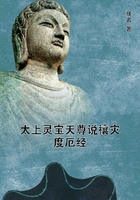She had more color and also more sincerity. In symmetry of character, in a certain feminine quality of taste and tenderness, she was superior, and she seems to me to have been of more intrinsic value as a woman. Whether under the same conditions she would have attained the same power may be a question. If not, I think it would have been because she was unwilling to pay the price, not because she lacked the grasp, the tact, or the diplomacy.
It is mainly as a woman of letters that Mme. de La Fayette is known today, and it was through her literary work that she made the strongest impression upon her time. Boileau said that she had a finer intellect and wrote better than any other woman in France. But she wrote only for the amusement of idle or lonely hours, and always avoided any display of learning, in order not to attract jealousy as well as from instinctive delicacy of taste. "He who puts himself above others," she said, "whatever talent he may possess, puts himself below his talent." But her natural atmosphere was an intellectual one, and the friend of La Rochefoucauld, who would have "liked Montaigne for a neighbor," had her own message for the world. Her mind was clear and vigorous, her taste critical and severe, and her style had a flexible quality that readily took the tone of her subject. In concise expression she doubtless profited much from the author of the MAXIMS, who rewrote many of his sentences at least thirty times. "A phrase cut out of a book is worth a louis d'or," she said, "and every word twenty sous." Unfortunately her "Memoires de la Cour de France" is fragmentary, as her son carelessly lent the manuscripts, and many of them were lost. But the part that remains gives ample evidence of the breadth of her intelligence, the penetrating, lucid quality of her mind, and her talent for seizing the salient traits of the life about her. In her romances, which were first published under the name of Segrais, one finds the touch of an artist, and the subtle intuitions of a woman. In the rapid evolution of modern taste and the hopeless piling up of books, these works have fallen somewhat into the shade, but they are written with a vivid naturalness of style, a truth of portraiture, and a delicacy of sentiment, that commend them still to all lovers of imaginative literature. Fontenelle read the "Princesse de Cleves" four times when it appeared. La Harpe said it was "the first romance that offered reasonable adventures written with interest and elegance." It marked an era in the history of the novel. "Before Mme. de La Fayette," said Voltaire, "people wrote in a stilted style of improbable things."
We have the rare privilege of reading her own criticism in a letter to the secretary of the Duchesse de Savoie, in which she disowns the authorship, and adds a few lines of discreet eulogy.
"As for myself," she writes, :"I am flattered at being suspected of it. I believe I should acknowledge the book, if I were assured the author would never appear to claim it. I find it very agreeable and well written without being excessively polished, full of things of admirable delicacy, which should be read more than once; above all, it seems to be a perfect presentation of the world of the court and the manner of living there. It is not romantic or ambitious; indeed it is not a romance; properly speaking, it is a book of memoirs, and that I am told was its title, but it was changed. VOILA, monsieur, my judgment upon Mme. De Cleves; I ask yours, for people are divided upon this book to the point of devouring each other. Some condemn what others admire; whatever you may say, do not fear to be alone in your opinion."
Sainte-Beuve, whose portrait of Mme. de La Fayette is so delightful as to make all others seem superfluous, has devoted some exquisite lines to this book. "It is touching to think," he writes, "of the peculiar situation which gave birth to these beings so charming, so pure, these characters so noble and so spotless, these sentiments so fresh, so faultless, so tender; how Mme. de La Fayette put into it all that her loving, poetic soul retained of its first, ever-cherished dreams, and how M. de La Rochefoucauld was pleased doubtless to find once more in "M. De Nemours" that brilliant flower of chivalry which he had too much misused--a sort of flattering mirror in which he lived again his youth. Thus these two old friends renewed in imagination the pristine beauty of that age when they had not known each other, hence could not love each other. The blush so characteristic of Mme. De Cleves, and which at first is almost her only language, indicates well the design of the author, which is to paint love in its freshest, purest, vaguest, most adorable, most disturbing, most irresistible--in a word, in its own color. It is constantly a question of that joy which youth joined to beauty gives, of the trouble and embarrassment that love causes in the innocence of early years, in short, of all that is farthest from herself and her friend in their late tie."
But whatever tints her tender and delicate imaginings may have taken from her own soul, Mme. de La Fayette has caught the eternal beauty of a pure and loyal spirit rising above the mists of sense into the serene air of a lofty Christian renunciation.
The sad but triumphant close of her romance foreshadowed the swift breaking up of her own pleasant life. In 1680, not long after the appearance of the "Princesse de Cleves," La Rochefoucauld died, and the song of her heart was changed to a miserere. Mme. de La Fayette has fallen from the clouds," says Mme. de Sevigne.
"Where can she find such a friend, such society, a like sweetness, charm, confidence, consideration for her and her son?"















